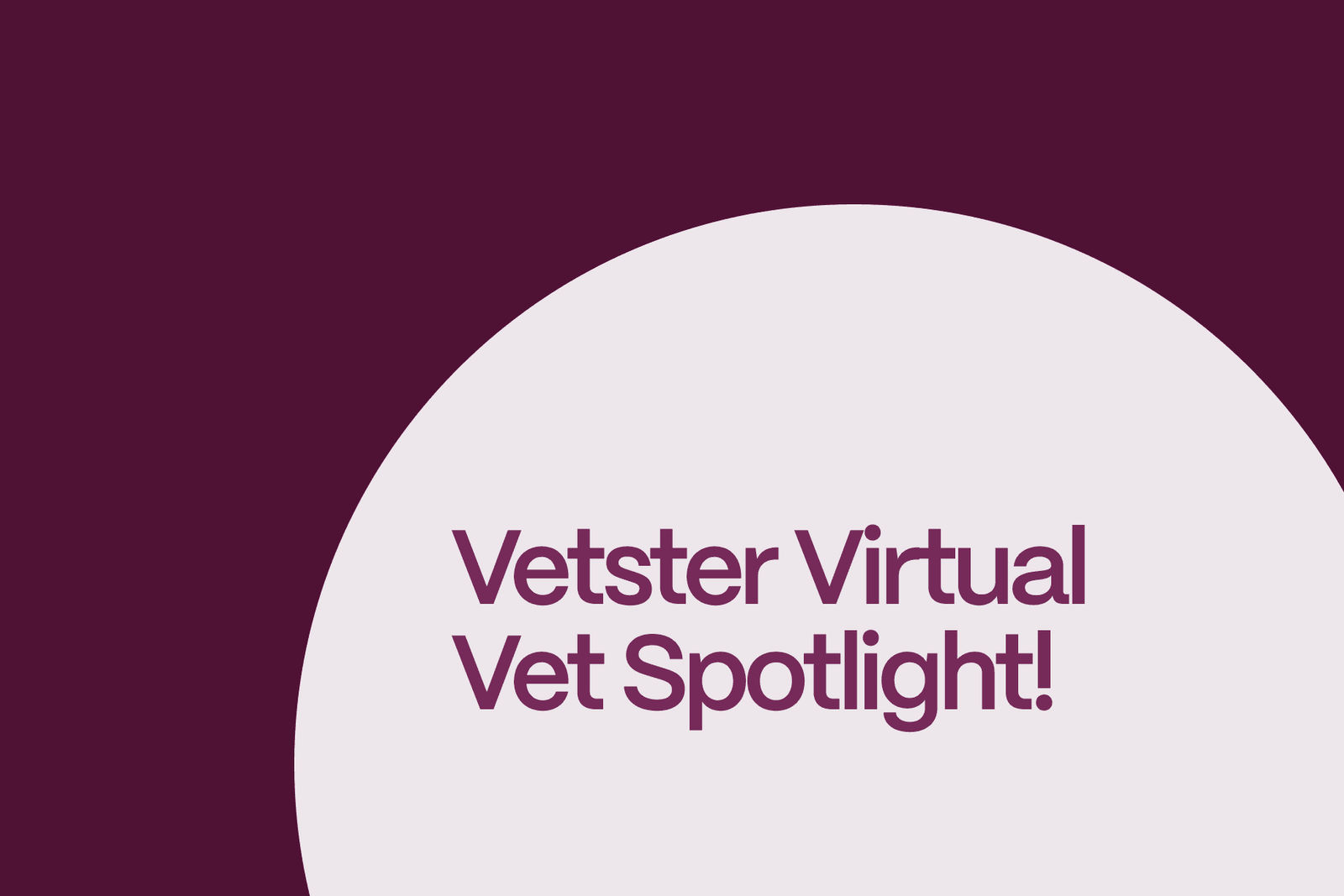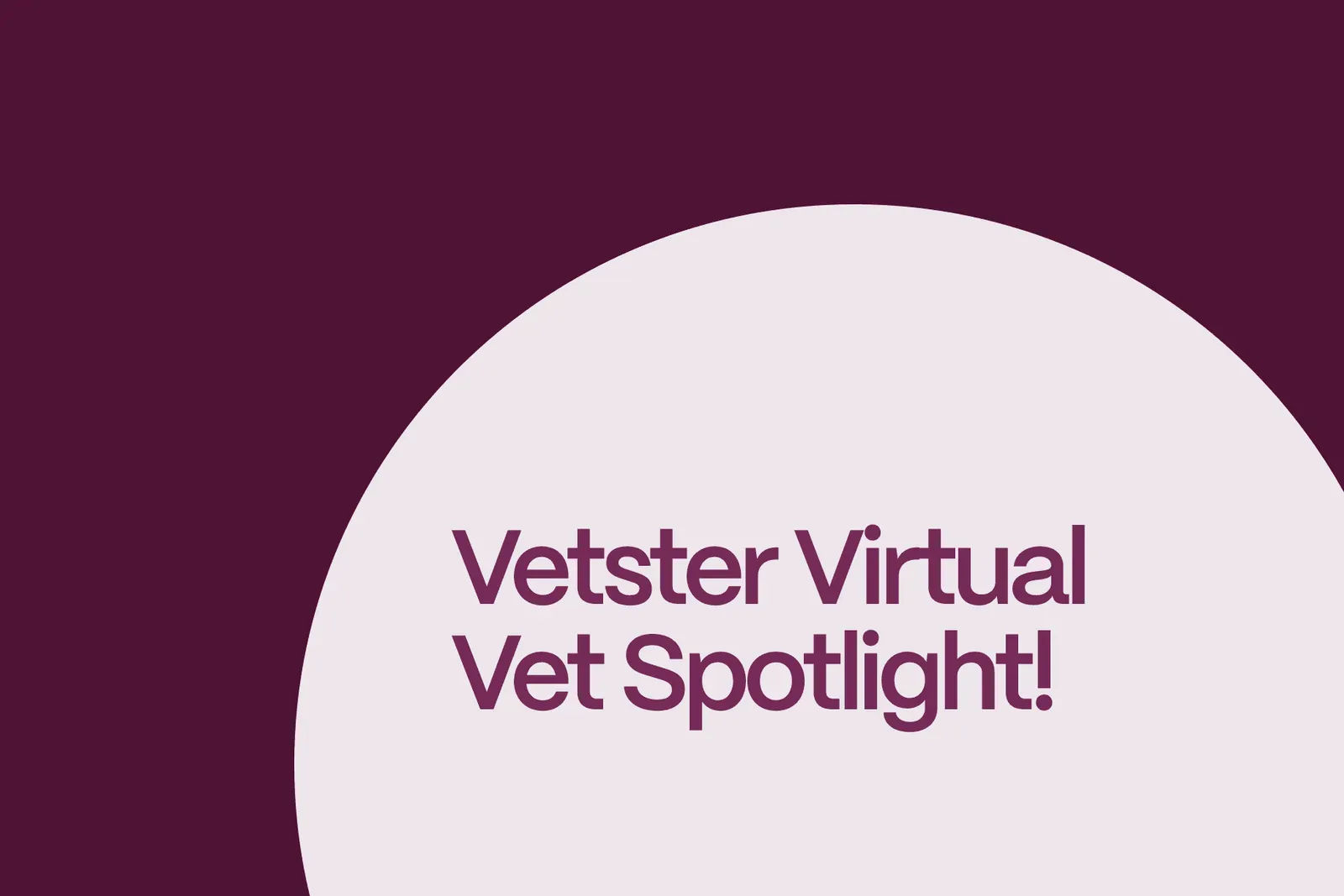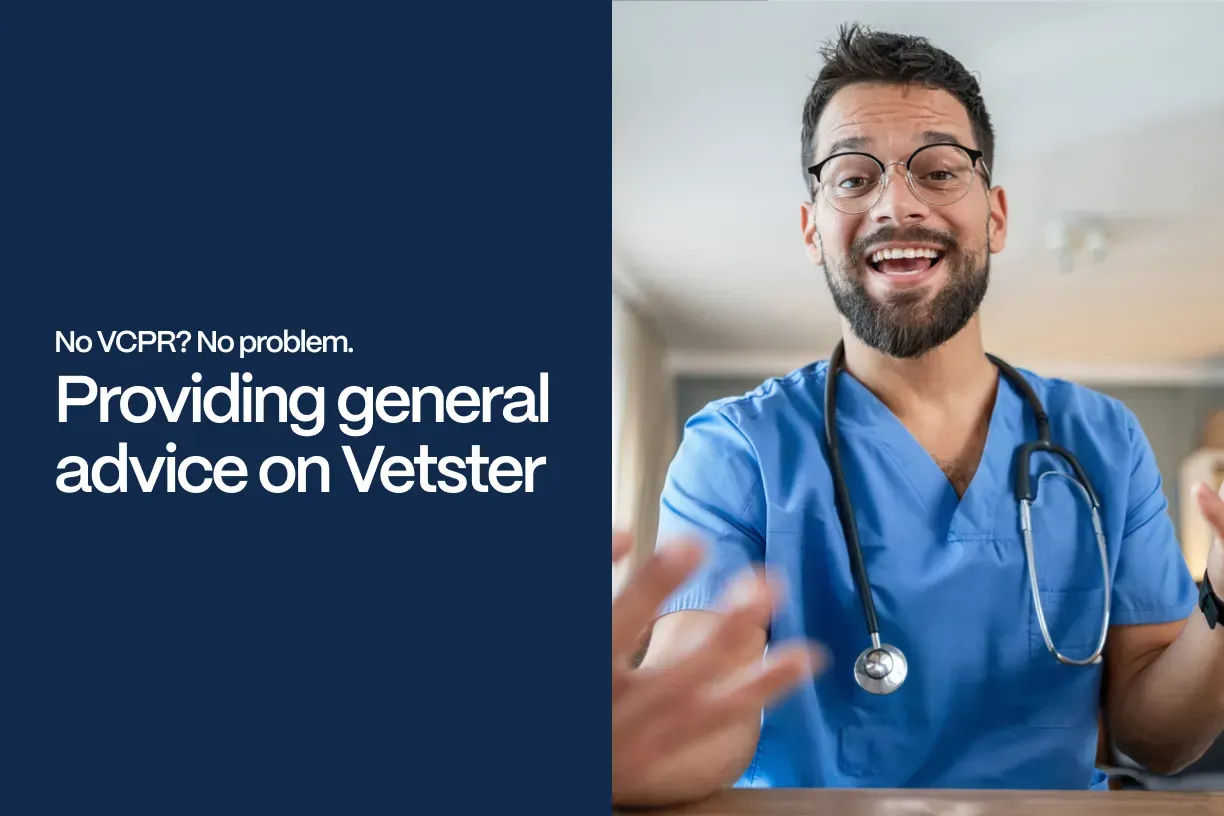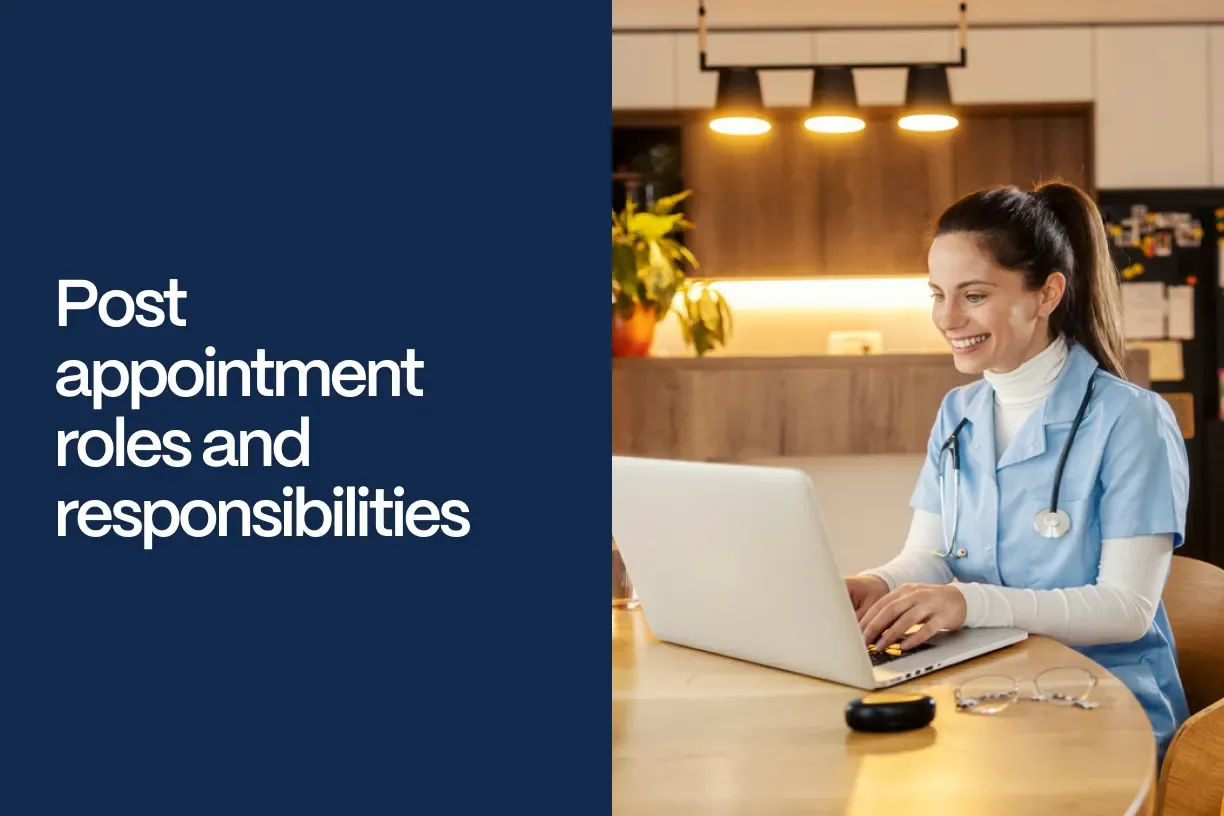Vet Spotlight: Dr. Jo Myers is passionate about educating veterinary professionals in the realm of virtual care.

Meet Dr. Jo Myers, who lives in the High Rockies of Colorado with her dog Trio. Not only has she been a star and exemplary Vetster user for the past year and a half, but she has been a valuable veterinary advisor to our company. Dr. Jo has put countless hours, attention and care toward developing our veterinary educational materials and is an immensely valuable resource to our Veterinary Services team.
“I want to be part of the movement to overcome hesitancy and resistance to change from within the veterinary community”

What originally brought you to Vetster and how did you first hear about the platform?
I first heard about the platform from a Facebook ad. It caught my attention because I’d left clinical practice after getting seriously burned out. I was working full-time as a firefighter, but I thought virtual care could provide a way for me to return to the profession and use my education to help pets and people again and earn at least a little income, while also maintaining some guardrails to prevent burnout.
I’ve always been interested in telehealth and had already been providing general information to pet owners on a question-answering website for several years. Seeing actual appointments sounded like it would be a lot more fun and satisfying. When the pandemic got rolling and lockdown started, I was excited that there would be even more demand for telehealth, and eager to do more online because our state temporarily allowed vets to establish a VCPR remotely.

You are passionate about educating vets in the telehealth space. Please tell us why and what your main goals are when it comes to this initiative.
I’m super excited to help veterinarians learn what a versatile, powerful, and good tool telehealth is because I want to be part of the movement to overcome hesitancy and resistance to change from within the veterinary community. Sometimes I feel like we veterinarians are our own worst enemy when it comes to moving the profession forward, giving in to the temptation to keep on doing things the same old way. I have to confess that early in my career when telehealth started to make more of a presence, I thought it was a terrible idea. I put it down because I thought it would sell pet owners short and result in poor quality of care. I think a lot of other veterinarians still feel the same way, and I’m passionate about helping them see the light the same way I did.
My main goal when it comes to this initiative is to get veterinarians to embrace virtual care for all of its strengths and not be afraid of what could go wrong. After all, virtual care really isn’t all that different from in-person care. Things aren’t perfect in either realm, and my hope is that we could realize we’re just making excuses instead of embracing telehealth for the powerful and virtual tool it is, as long as we use it responsibly - just like our responsibilities with hands-on practice. I think sharing personal stories and experiences are powerful tools for persuasion, so talking to vets and illustrating how easy it is to use telehealth responsibly and ethically to improve pet well-being and meet client demand is something I’m passionate about.

What do you believe are the biggest hurdles for vets and techs when it comes to virtual care? How do you believe they can be resolved?
We grow and change in this profession, and I’m excited to take a progressive and innovative approach to how we practice veterinary medicine. I’d love to help other veterinarians and technicians learn the lessons I’ve embraced along the way:
- That clients value the opportunity to talk to us, even when we’re only providing general advice and information.
- That it’s easy to learn how to stay within the guardrails of general advice and information and you can still do a lot to help people even when you don’t have a VCPR.
- That using technology for triage (teletriage) is a huge opportunity for us to provide a far superior service while also lightening the load for overburdened brick and mortar practices and monetizing a previously untapped revenue stream.
- That remote care does not equal poor quality care. On the contrary, it can improve the level of care by increasing access and compliance. We shouldn’t somehow feel as if we’re expected to lower our standards of care just because we’re working remotely and one of the most valuable things we can provide clients with is letting them know when they need in-person care.
- That we need to listen to what clients want and meet them where they are as the roles of technology and the human-animal bond shifts with younger generations.
- That there is a spectrum of care, not just one standard, and we need to bring down barriers to accessing care so we can serve all pets.
I know my mind was changed about these issues based on articles I read and speakers I heard. I’m eager to reach more veterinarians across the industry and make new converts. Once veterinarians are on board with what telehealth has to offer, remote and in-person providers will be able to work as a team.

What is your most memorable case you handled on Vetster?
I know a lot of people go into vet med because they love animals, but for me the true calling was developing relationships with people. Don’t get me wrong, I really love animals too, and because of that I know how much they mean to people. It’s being able to make a big difference in the lives of people that makes a case memorable to me.
Telehealth truly does expand our reach and help us build and maintain relationships with all kinds of people in a lot of different ways. My most memorable case on Vetster was when I connected with someone I hadn’t seen since she was about 14 years old. Our families were friends and our kids were the same age, but in the intervening 10+ years life had happened and we’d gone our separate ways. She and her dog had grown up, but we found each other thanks to Vetster. It was wonderful connecting with her again and seeing her sweet dog through his senior years. Our video conferences were an important part of navigating his special needs as a senior pet.

How has Vetster helped you in both your professional and personal life?
Vetster has helped me tremendously by allowing me to earn a living with my extensive veterinary skills, training, and experience. It feels great to be valued for what I know in addition to what I can do while also enjoying vastly improved work/life balance and flexibility with my schedule.
I’ve owned my own clinic and also spent a significant amount of time working in emergency clinics. In almost every veterinary workplace, one of the biggest stressors is how hard it is to get time off, especially since you usually have to find your own coverage. As a result, it’s usually “easier” to just keep working and develop an “I’ll do it myself” attitude. This, of course, is not sustainable. With Vetster, I have complete flexibility with my schedule and never have to find coverage, even for last minute changes.
If you're interested in being featured in our blog, please contact Jennifer, our Manager of Veterinary Success by emailing jennifer@vetster.com.
Looking to join Vetster?
You may create an account as a veterinary professional, or learn more here.









